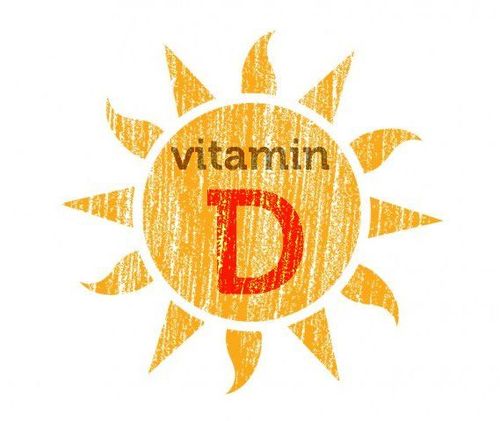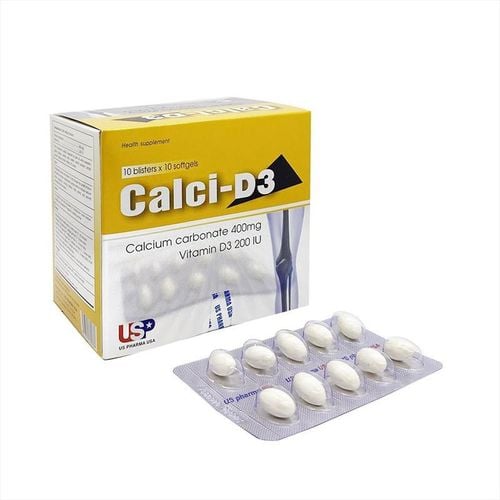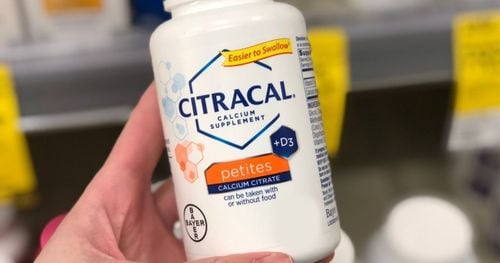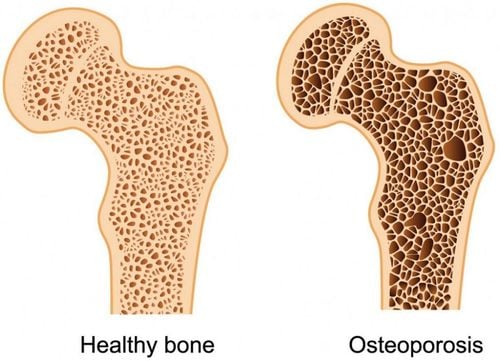This is an automatically translated article.
The article was professionally consulted by Dr. Phan Nguyen Thanh Binh - Head of the Department of Nutrition - Dietetics - Department of Pediatrics - Neonatology - Vinmec Central Park International General HospitalVitamin D has to go through several metabolisms in the body before the body can use it. It starts when the liver converts vitamin D into a chemical called 25-hydroxyvitamin D. Therefore, the 25-hydroxyvitamin D test is the best way to monitor vitamin D levels in the body. In addition, this is also an important indicator to determine the status of osteoporosis and rickets.
1. Why is a quantitative vitamin D test needed?
Vitamin D is a fat-soluble steroid hormone precursor whose primary biological function is to maintain normal blood calcium and phosphorus levels and is involved in bone mineralization. Vitamin D also affects the expression of more than 2,000 genes, including those responsible for the regulation of cell proliferation, cell differentiation, apoptosis, and cell proliferation. vessel wall. Vitamin D has immunomodulatory effects. Many medical conditions are associated with Vitamin D deficiency.In the blood, vitamins D2 and D3 are bound to vitamin D-binding proteins and transported to the liver, where they are hydroxylated to 25-hydroxylvitamin D (25- OH). The 25OH vitamin D (vitamin D3) quantification is a quantitative test for the 25-hydroxyvitamin D metabolite - the major circulating form of Vitamin D in the body and the best indicator of the body's true vitamin status.
25-OH Vitamin D (D3) quantitative test to assess vitamin D deficiency to diagnose rickets, osteoporosis, or excess with prolonged high-dose supplementation.
Vitamin D deficiency
Osteoporosis, rickets. Musculoskeletal: persistent and nonspecific pain. Digestive diseases: Crohn's disease, after cholecystectomy, gastric bypass surgery affect vitamin D absorption. Overweight- Obesity. Exclusively breastfed babies. People with little exposure to the sun. People with symptoms of depression or lack of energy. Elderly (myasthenia gravis). Other diseases: cancer, diabetes, high blood pressure, heart disease, multiple sclerosis, systemic lupus erythematosus, Alzheimer's disease, Parkinson's disease, epilepsy,...). Excess vitamin D
Take vitamin D supplements more than 50 mcg (2,000 IU) per day for long periods of time.

Xét nghiệm 25-hydroxyvitamin D
2. How is the test performed?
Patients need to fast for 4 to 8 hours before taking a blood test before taking a vitamin D test. Use venous blood for the test.3. How are test results evaluated?
Vitamin D test results will depend on your age, sex, test method used, and how each lab reads the results. In addition, the doctor will evaluate the results based on your health, lifestyle, diet, medication and supplements. This means that a value outside of the normal values listed here may still be normal.The thresholds below are commonly used:
Vitamin D deficiency: less than 30 nmol/L (12 ng/mL) Risk of vitamin D deficiency: between 30 nmol/L (12 ng/mL) to 50 nmol /L (20 ng/mL) Normal: between 50 nmol/L (20 ng/mL) to 125 nmol/L (50 ng/mL) High: more than 125 nmol/L (50 ng/mL) ). Levels of vitamin D toxicity have been reported to range from 200-250 ng/mL (uncommon). If vitamin D levels are low and you have symptoms of bone pain, your doctor may order additional tests to check bone density. Low blood levels of 25-hydroxy vitamin D are common in the following situations:
Diet is deficient in vitamin D The intestines are limited absorption of vitamin D Lack of time for the skin to be exposed to sunlight Some evidence linking is associated with vitamin D deficiency with an increased risk of certain cancers, immune diseases, and cardiovascular disease

Nồng độ 25-hydroxy vitamin D trong máu thấp do chế độ ăn thiếu vitamin D
For children to be healthy and develop well, it is necessary to have a nutritious diet in terms of quantity and quality balance. If children are not provided with adequate and balanced nutrients, it will lead to diseases of excess or lack of nutrients, which adversely affect the comprehensive development of children in terms of physical, mental and motor skills.
Children who do not eat properly are at risk of micro-mineral deficiency causing anorexia, growth retardation, malabsorption,... If they notice the above signs, parents should supplement their children with products. The supplement contains lysine, essential micro-minerals and vitamins such as zinc, chromium, selenium, and B vitamins to help fully meet the nutritional needs of children. At the same time, these essential vitamins also support digestion, enhance nutrient absorption, help improve anorexia, and help children eat well.
Parents can learn more:
Signs of zinc deficiency in children
Micronutrient deficiency and failure to gain weight in children
Please regularly visit Vinmec.com website and update useful information to take care of your child. Take care of the baby and the whole family.
Articles refer to the source healthline.com














